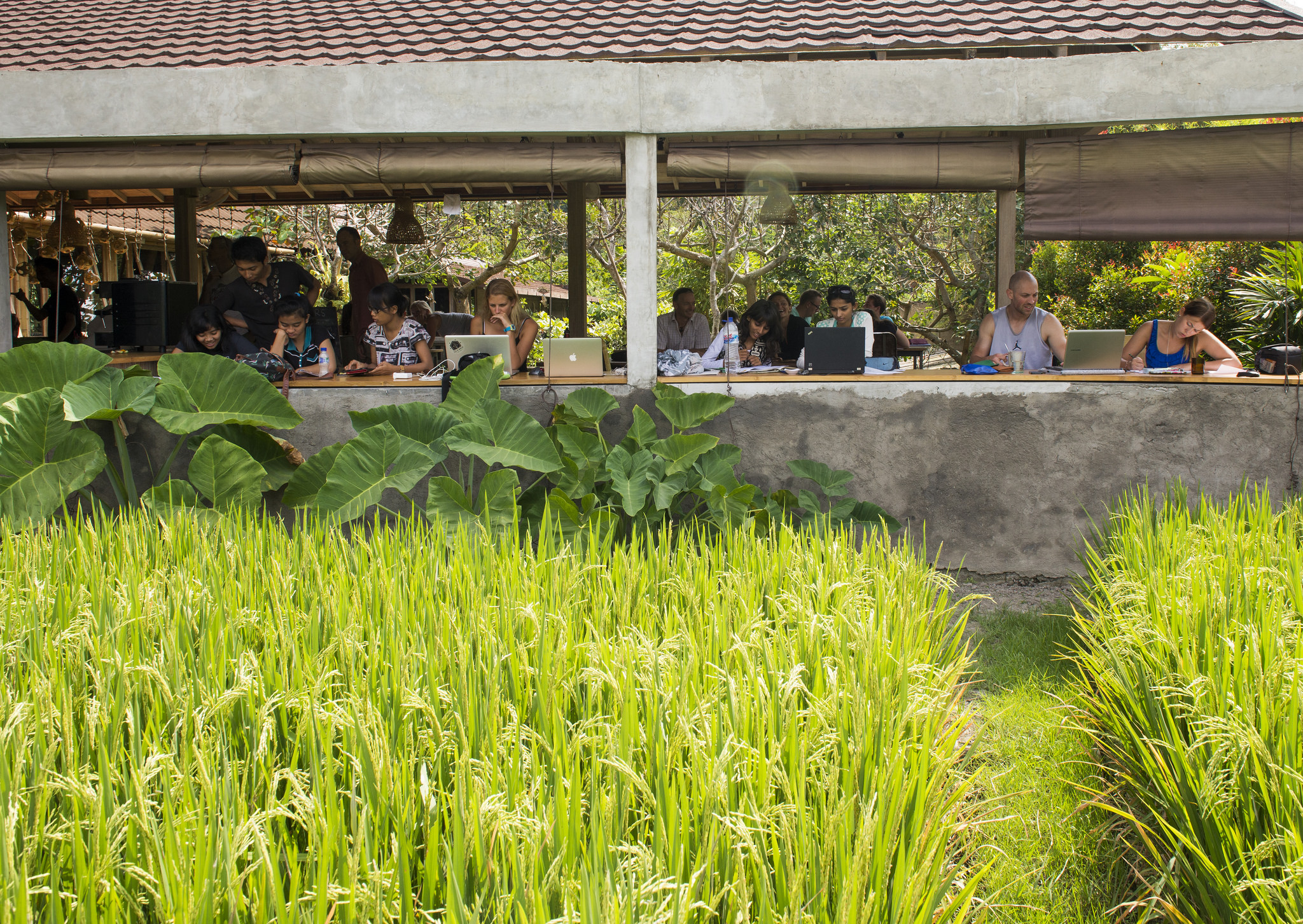Living in different places means meeting a lot of new and very interesting people. Steve Munroe, whom we met when escaping Jakarta’s traffic jams for a weekend in Bali is one of them. The popular tourist destination has become a common first stop for digital nomads. Today, Bali has a number of co-working spaces, providing a local community for freelancers and entrepreneurs working on their own projects or with remote teams. Mr Munroe co-founded Hubud, the first co-working space in Bali. We discussed digital nomadism, lifelong learning and world-schooling with him.
Why did you start Hubud?
“I had been living in Ubud
“My co-founders and I started Hubud to answer the question: ‘If we can bring together all the disparate geniuses in Ubud in one place, what would be possible?’”
Since you started the co-working space Hubud, digital nomadism has become a trend. Why do you think this is happening now?
“Partly it was a matter of good timing. People had started becoming more mobile, and books like ‘The 4-Hour Workweek’ influenced many to quit their jobs and start working and travelling. I think by the time we opened, many of these ‘early adopters’ were finding new problems on the road (loneliness, isolation) that we helped solve for them.
“Bali is a fantasy place for many people, so the idea of working in paradise in such a beautiful office, with such amazing co-workers, is like a dream.”
Mr Munroe, who is Canadian, had been living abroad, working for the UN for 12 years, when he decided to stay for a longer period in Bali. While we thought we’d have a conversation about being a digital nomad, we soon found ourselves talking about lifelong learning, world-schooling and place-based learning. We spent a lot of time talking about how to continue living a life in different locations when you start a family.
You now have two children and have started to “world-school” them. What does that mean?
“We encourage adults to use the world as their classroom, so why wouldn’t we do the same with our kids? We have had our kids at the Green School for many years, and experimented with homeschooling one of them last year which went really well. This year, we homeschooled both of them so had no restrictions to travelling with them, and during the first semester they spent 2.5 months in the US, Georgia, Uzbekistan, Greece and Turkey. They do one to two hours a day of core subjects, then do place-based learning where we are travelling. My 11-year-old is really into Greek mythology. Having that coming alive for him by going to Zeus’s cave in Crete is an incredible opportunity.”
The concept of place-based learning, could you please elaborate on that?
“I learn much more when I am doing something instead of just reading about it. Everything comes alive when you are experiencing rather than just reading about it. My kids (9 and 11) have friends from Russia, and have heard about the Soviet Union. But travelling through Georgia and Uzbekistan opened up tons of opportunities for discussions about history and political systems, or why there is such a large Korean population in Tashkent.
“If your kids are interested in fine arts, getting a crash course on the different weaving schools and patterns in Central Asia at the beginning of the trip means that every time they see a carpet during the trip they are curious about it. It becomes a game which helps the whole thing come alive.”
During an inspiring talk at TEDxBarcelonaED, Mr Munroe, who describes himself as a “post-cubicle survivor,” shares his view on lifelong learning. It’s well worth watching, at the very least for his awesome t-shirt.
Finally we asked Mr Munroe if he could summarize his thoughts on the future of education and work.
“I think it will all be much more bite-sized. I will continue learning my whole life as a matter of survival, but may not invest in a huge upfront chunk of it in the form of a 4–5-years degree. We will all need to be more entrepreneurial in our approach to work and learning, as industries will shift faster. People will be more mobile. Distributed teams will continue to grow in numbers, as will communal areas like co-working spaces, as people continue to seek human interaction in an increasingly tech-filtered world.”
If you’re interested in learning more about this, you can read about Hubud and check out Coworking Unconference Asia, an event Mr Munroe and others will host in Bali in February next year.


